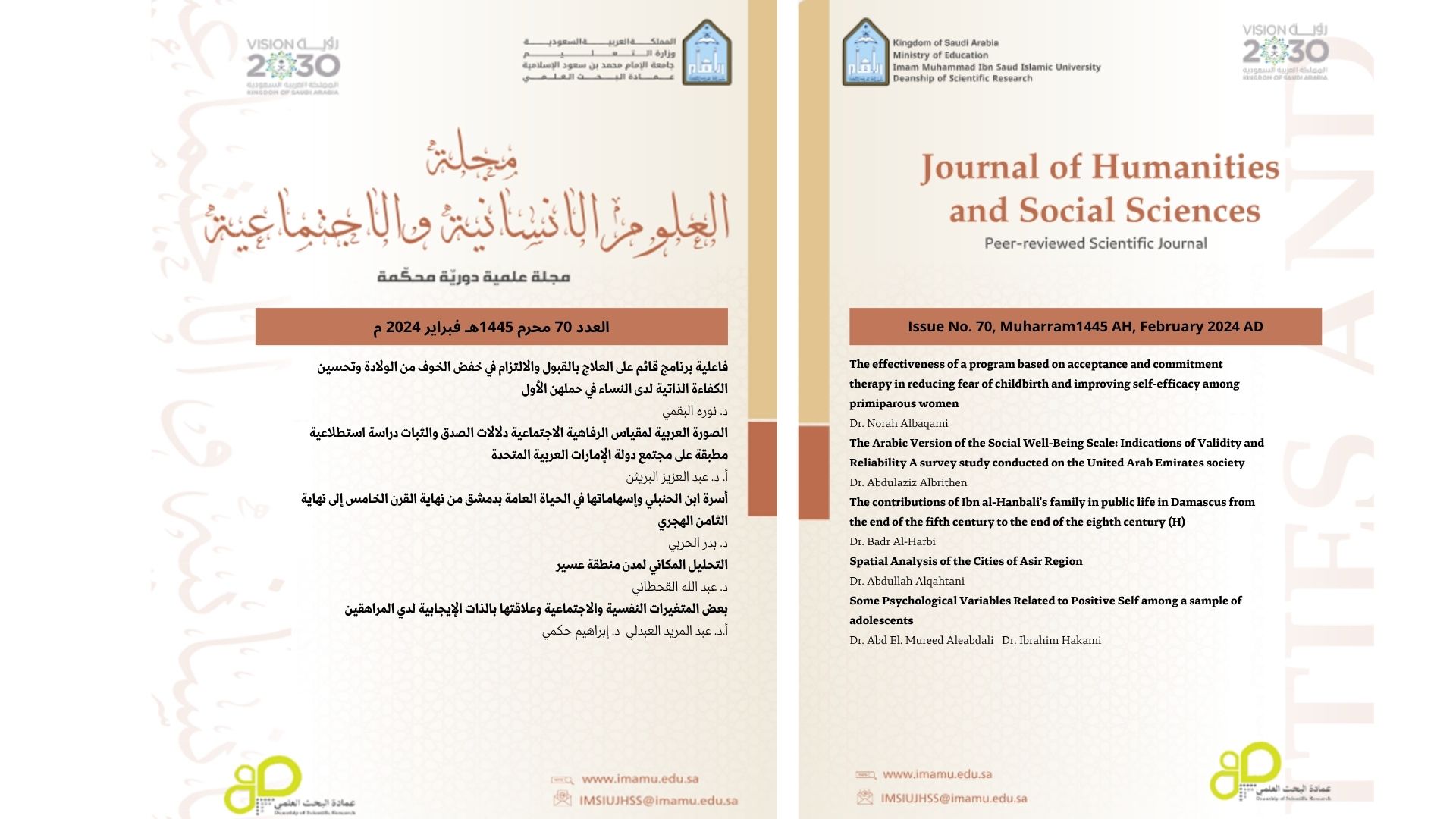The contributions of Ibn al-Hanbali's family in public life in Damascus from the end of the fifth century to the end of the eighth century (H)
Keywords:
Al-Hanbali , Ibn Al-Hanbali , Damascus, Al-Nasih , AyyubidAbstract
in high position and privileged status. In addition, they have the historians' praises and appreciation for the great role of its men and women regarding the political and civil fields. Among these families is the family of Ibn al-Hanbali whose homeland was Damascus where they learned from elite of brightest scholars. Moreover, Damascus was the destination of the learners from all sides. The family were in high position enabled them to gain the trust and respect of rulers and sultans. The family of Ibn al-Hanbali is one of the oldest Hanbali scholarly families in Damascus. It is among the first to publish the doctrine as well as building school for Hanbalis there. The family's sons inherited the Islamic knowledge generation after generation for four centuries. The family came to Damascus at the end of the fifth century (H) and continued its way until the end of the eighth century (H). The study is divided into an introduction, five key points and a conclusion. The first point addresses the family origin and lineage and its notable figures. The second point discusses the family's contributions in the political and administrative life. The third point explains the family's contributions in the scientific life. The fourth point includes the family's contributions in the social life, and followed by the conclusion.




